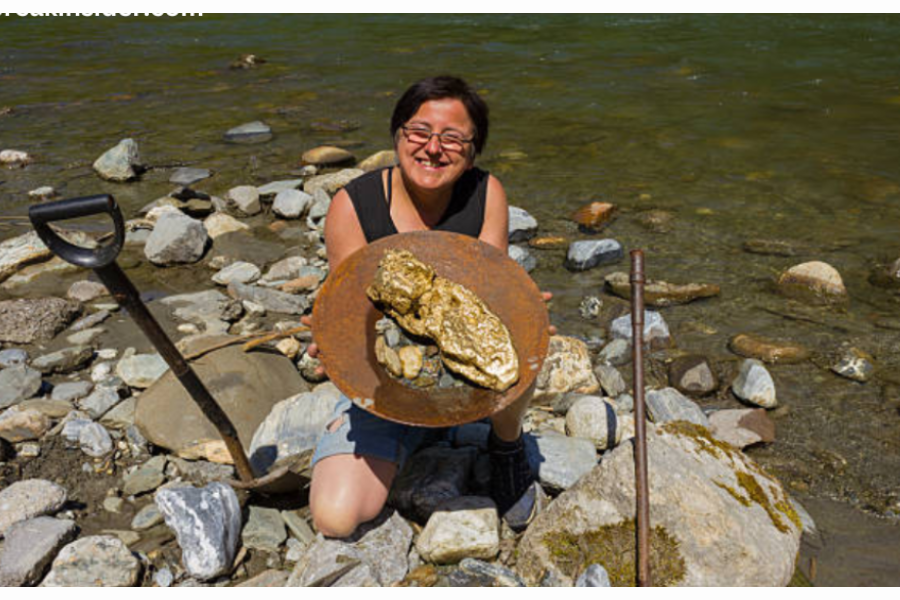Gold mining has been a cornerstone of human civilization for centuries, serving as both a source of wealth and cultural significance. The process of extracting gold from the earth involves various methods, from small-scale artisanal mining to large industrial operations. However, the pursuit of gold can have serious ecological and social repercussions when not done responsibly.
The term “tertiary discipline in gold mining” (Tertib Ketika Mendulang Emas) underscores the importance of organized, responsible, and ethical practices in this critical industry. Mining operations must prioritize a balance between environmental conservation, worker safety, and operational efficiency to ensure that gold extraction remains sustainable for generations to come.
Why Discipline is Essential in Gold Mining
Environmental Impact of Unregulated Mining Uncontrolled gold mining operations often result in detrimental environmental consequences such as deforestation, soil degradation, and contamination of water sources. A disciplined approach helps minimize ecological damage by enforcing adherence to environmental standards and promoting sustainable extraction methods.
Health and Safety Concerns Gold mining can be hazardous, with risks ranging from accidents due to unstable structures to exposure to harmful substances like mercury and cyanide. Strict safety measures are necessary to protect workers’ health and well-being. Mining operations that focus on disciplined practices ensure that safety protocols are in place, reducing the likelihood of injury and illness.
Economic Stability Through Responsible Mining Disorderly and illegal mining can cause financial instability, both for individual miners and local economies. By adopting organized mining strategies and adhering to legal frameworks, miners can enhance their gold yields, leading to better economic conditions for communities dependent on mining activities.
Core Principles of Responsible Gold Mining
Compliance with Mining Regulations Adherence to both local and global mining regulations is paramount. These laws are designed to promote sustainable practices and ethical conduct within the industry. Following these standards helps avoid legal consequences and ensures that mining operations are environmentally and socially responsible.
Efficient Resource Utilization Gold mining is not just about extraction but also about optimizing resource management. By employing advanced technologies and careful planning, miners can improve the efficiency of their operations, minimizing waste and reducing environmental impact. Techniques such as geological surveys and automated drilling have revolutionized the industry, enabling more precise and productive mining practices.
Waste Management and Reduction Improper handling of mining waste, such as tailings or toxic chemicals, can have severe environmental repercussions. Responsible mining operations emphasize proper waste disposal techniques to prevent contamination and minimize the ecological footprint.
Sustainable Mining Methods Eco-friendly mining techniques, including gravity separation and bio-mining, can significantly reduce the use of harmful chemicals like mercury and cyanide. Many leading countries, including Australia and Canada, have pioneered these methods, demonstrating that sustainable gold mining is not only possible but essential for long-term industry health.
Tools and Technologies for Disciplined Mining
Essential Gold Prospecting Tools Successful mining operations begin with the right tools. Basic tools such as panning equipment, sluice boxes, metal detectors, and shovels form the foundation of any responsible mining operation. When used properly, these tools help reduce environmental impact and maintain orderly operations.
Technological Innovations in Mining Advancements in technology have transformed the mining sector. GPS-driven surveys, automated drilling rigs, and real-time data collection systems are helping miners work more efficiently and safely. These technologies also contribute to more sustainable mining practices by facilitating better resource management.
Safety Gear for Miners Gold mining comes with significant risks, but proper personal protective equipment (PPE) can help mitigate these dangers. Helmets, gloves, boots, and safety glasses are essential for minimizing the risk of injury. Disciplined mining practices make PPE mandatory, ensuring the protection of every worker.
Organized Practices for Successful Mining Operations
Well-Managed Workforce A disciplined and organized workforce is essential for the success of any mining venture. When teams are properly trained, well-coordinated, and committed to shared safety and environmental goals, productivity increases, and the risk of accidents decreases. Effective leadership and teamwork are critical in maintaining operational order.
Effective Time Management Efficient time management is crucial in gold mining. Proper scheduling of tasks ensures smooth operations, reducing downtime and maximizing production efficiency. Planning and prioritizing work allow miners to improve both productivity and resource recovery.
Regular Equipment Maintenance Maintaining mining equipment is vital for avoiding disruptions and costly repairs. Disciplined mining operations regularly inspect and maintain their machinery, ensuring continuous production. Preventative maintenance also extends the lifespan of equipment, offering significant cost savings.
Environmental Considerations for Sustainable Mining
Reducing the Use of Harmful Chemicals Gold mining often involves chemicals like mercury and cyanide, which pose significant health and environmental risks. Reducing their use is essential for responsible mining. Alternatives such as gravity-based separation methods and eco-friendly chemicals offer safer and more sustainable options for miners.
Post-Mining Land Reclamation After gold extraction, mining sites can be left barren and polluted. Restoration efforts, such as replanting trees and rejuvenating local ecosystems, are essential for reversing environmental damage. Disciplined mining operations prioritize land rehabilitation, ensuring that mining sites are restored to their natural state.
Economic and Social Advantages of Responsible Gold Mining
Creating Jobs and Boosting Local Economies A well-managed gold mining operation can provide long-term employment opportunities and contribute to local economic development. By adhering to disciplined mining practices, mining companies can create stable jobs and support local businesses, enhancing the overall economic stability of mining communities.
Ethical Mining Practices Ethical mining involves fair treatment of workers, providing safe working conditions, and paying fair wages. This not only ensures the welfare of miners but also aligns with the growing global demand for ethically sourced gold. By adopting transparent, responsible practices, mining companies can build trust with consumers and investors alike.
Conclusion
The future of gold mining hinges on the adoption of disciplined, responsible practices. By embracing the principles of “tertiary discipline in gold mining,” the industry can safeguard both the environment and the people involved, ensuring a sustainable and profitable future for gold mining operations worldwide.
Unlock powerful SEO insights and strategies at seofigure.
